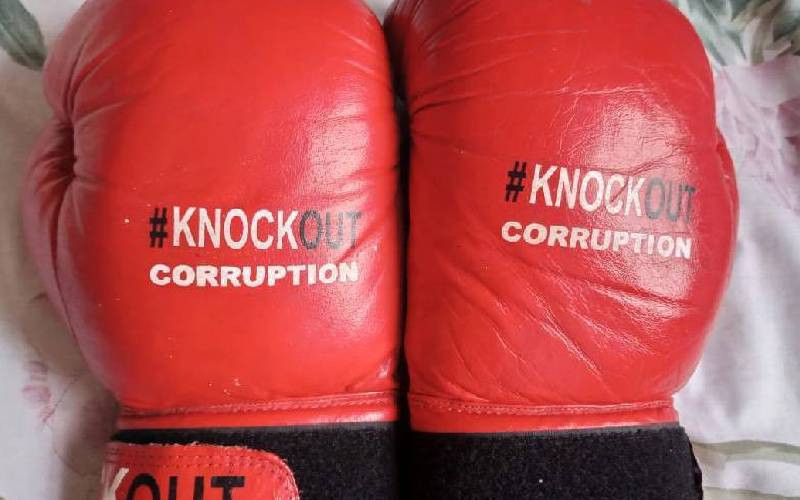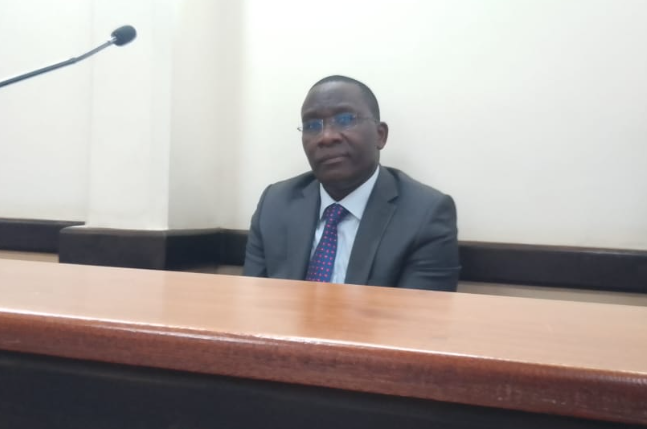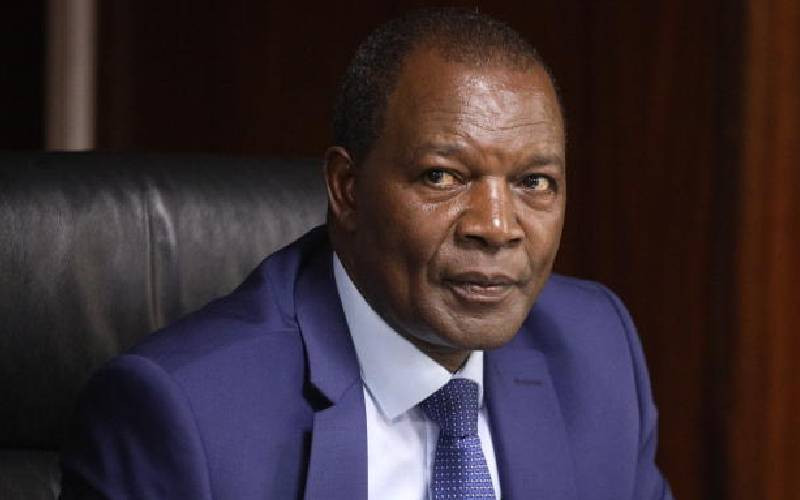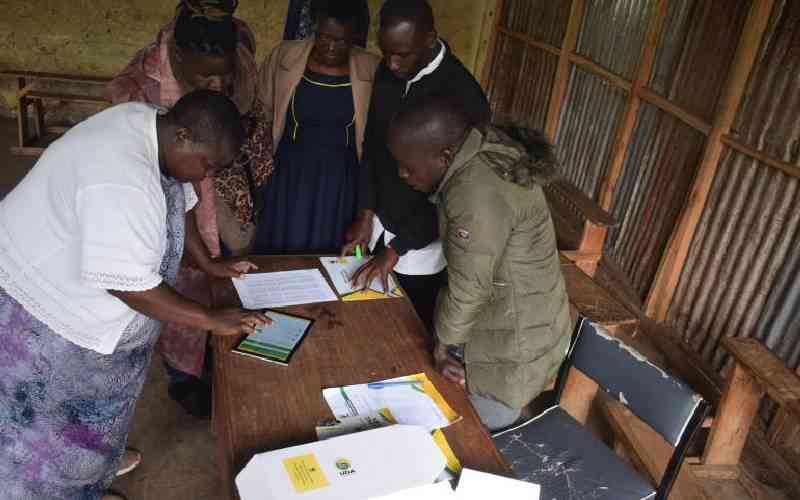
The wheels of change in society can be slow, but they keep rolling nonetheless. Often times, they roll incognito without the majority of people ever noticing. For decades, the nation has been consumed in the politics of the day.
But, who could have ever imagined that the state of the economy, cost of living and technical government financial reports could sustainably make it to the top news in both mainstream and social media for weeks on end? When did public scrutiny of government spending substitute things like the politically instigated bi-partisan talks ongoing at Bomas of Kenya across all breakfast talk shows of the media houses?
Do those in power and authority notice this emerging trend? Do they consider them as significant shifts in the society or just inconsequential noise from powerless folks as usual?
From this column, intuition tells me that sooner rather than later, this nation will finds its redemption. Since we are officially a Godly and prayerful nation, my religious beliefs instruct me that among our ranks there would be some remnants, faithful and who pay true homage to our National Flag and Court of Arms. In any case, if the God of this land truly lives, then He cannot be indefinitely silent to the tears of the masses that those in authority treat with contempt.
Good laws
As we come to terms with the reality of the ‘crime scene that the Turkana County is’ as declared by the Senate this past week, our attention cannot be lost from what is happening across the other 46 counties. It cannot be true that the rot happened only in one county when there is negligible developmental impact of the over Sh3.5 trillion sent to counties over the past 10 years.
It is an open secret that each county, without exception, has manufactured more billionaires and millionaires at a faster rate than they have sank boreholes, build Early Childhood Development and Education (ECDE) centres or stocked basic medical supplies in local health centres and dispensaries. I have been in combat in our devolution experiment long enough to know this as a true statement of fact. This is not exclusive to devolved units, however; it is no different at the national level.
As I have stated here consistently, there is something fundamentally wrong with an economy where politicians and public officials rank among the wealthiest in society. There is also no known sound economic order that can enable public officials acquire prime properties in the land, only months of assumption of public office. These are folks with no known good businesses or tax payment history, other than their employment pay slips.
The only system that is facilitative of such behaviour in society are extractive political systems as ably explained by Daron Acemoglu and James A. Robinson in their classic, Why Nations Fail: The Origins of Power, Prosperity and Poverty. The good news is that throughout economic history, such regimes have a sale-by date. Eventually, the inalienable collective good interwoven into any society overcomes such political institutions. That is why any rational national leader will be extremely naïve and misadvised not to take note when economic issues take the centre stage across the media. These are tell-a-tale signs that the people are teetering towards their elastic limits.
The questions left now for us are: How did we get to this point? Are there viable and humane options out?
For starters, those of us who have a fair grasp of Chapter 12 of the Constitution and the enabling legislations will know for a fact that Kenya has one of the best and robust financial governance structures around the world. As a country, we are a trailblazer in adoption and championing of International Financial Reporting and Auditing Standards in the continent.
On any single day, I interact with these legislative frameworks like a 10-year-old devoid of the legal jargon. Only then can one appreciate the depth and wisdom behind our financial governance structures. For instance, the Public Sector Accounting Standards Board (PSASB) has scheduled the country to fully transit to Accrual Based Accounting system, from a Cash Based one, under the International Public Sector Accounting Standards (IPSAS) from this 2023/24 fiscal year. This in effect should cure wasteful end year government spending and the pending bills menace.
Accounting standards
Besides, the country transitioned to Standardised Financial Reporting Templates that inbuilds not only the governing laws in the country but also the accounting standards and global best practices in 2014/15 fiscal year. This covers all public entities with public schools being the latest to be brought onboard. It is hoped by the end of this fiscal year, we shall be able to prepare a single set of Consolidated Financial Accounts for the Republic of Kenya, similar to Group Accounts done by the private sector.
Stay informed. Subscribe to our newsletter
On matters internal controls and audit, the PSASB has already provided standardised tools for all public entities to comply with the International Professional Practice Framework (IPPF) for Internal Auditors. With all this, it is inconceivable to imagine how the plunder and waste in government continues unabated.
As a practitioner in the Public Finance discourse, I am proud that the nation is discussing Monitoring and Audited Accounts from the Controller of Budgets (CoB) and Auditor General (AG) on national TVs and social media. Whatever is the force behind it does not matter. What this is doing is opening the lid on the weakest link in our economic governance and public financial management.
Our good laws, institutions and intents collapse at the altar of oversight. Here, I am making specific reference to Parliament (National Assembly and Senate), County Assemblies, the Independent Constitutional Offices (CoB & AG), among others. We should make specific reference to several Articles of the Constitution: 95, 96, 185, 201, 226, 228, 229 and 230, among others.
On the oversight of the National Government, the Public Accounts Committee (PAC) and Public Investments Committee are the duty bearers to dispense with the matters raised by the Auditor General from the accounts of all national government entities within three months of receiving them. These committees have Quasi-Judicial powers as they execute this responsibility.
At the devolved governments, the Supreme Court on 7th October, 2022 in the petition of ‘Senate vs Council of Governors & 6 others’, petitions number 24 & 27 of 2019 (consolidated) ruled that: one, in performance of its oversight role over county revenue, the Senate has powers to summon county governors to answer any questions or provide any required information; two, Senate’s oversight authority is not limited to nationally allocated revenues but extends to locally generated revenues; and three, County Assemblies have first tier oversight responsibility over county government revenues whether nationally allocated or locally generated.
The opinion of the court was emphatic that “the purpose of the Constitution is to entrench good governance, the rule of law, accountability, transparency and prudent management of public finances at both levels of government.” For avoidance of doubt, Parliament is the single highest funded agency in the country and draws its funding direct from the consolidated fund. County Assemblies are not underfunded given they do not implement any development projects. The CoB and AG enjoy Constitutional autonomy in mandate and finances under the law.
The elephant in the room is: where were these agencies when all this waste is going on? It is not inconsequential for this question when it is MPs and MCAs that are leading the charade of globe-trotting. In a separate ruling shortly before 2022 elections, the Supreme Court found the involvement of elected officials in implementation of projects like the National Government Constituency Development Fund amounts to conflict of interest, even if their roles were superficial.
And of course, I am not naïve not to be aware of boardroom horse-tradings by some rogue auditors to cover the ongoing plunder. These questions ultimately matter a lot when it comes to protecting taxes from and for the benefit of ‘Wanjiku’.
 The Standard Group Plc is a
multi-media organization with investments in media platforms spanning newspaper
print operations, television, radio broadcasting, digital and online services. The
Standard Group is recognized as a leading multi-media house in Kenya with a key
influence in matters of national and international interest.
The Standard Group Plc is a
multi-media organization with investments in media platforms spanning newspaper
print operations, television, radio broadcasting, digital and online services. The
Standard Group is recognized as a leading multi-media house in Kenya with a key
influence in matters of national and international interest.
 The Standard Group Plc is a
multi-media organization with investments in media platforms spanning newspaper
print operations, television, radio broadcasting, digital and online services. The
Standard Group is recognized as a leading multi-media house in Kenya with a key
influence in matters of national and international interest.
The Standard Group Plc is a
multi-media organization with investments in media platforms spanning newspaper
print operations, television, radio broadcasting, digital and online services. The
Standard Group is recognized as a leading multi-media house in Kenya with a key
influence in matters of national and international interest.










